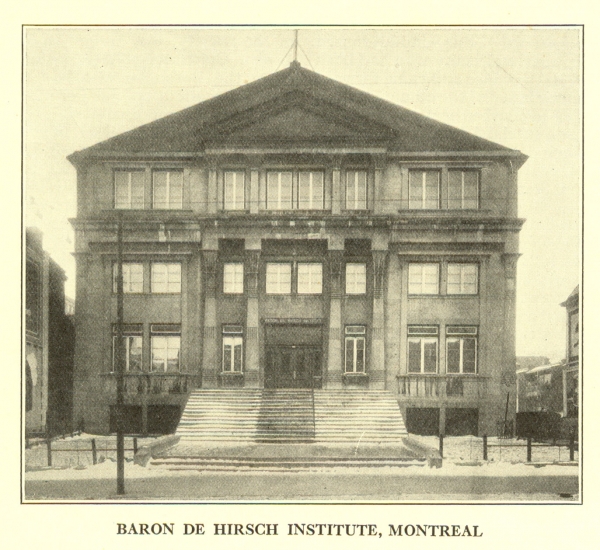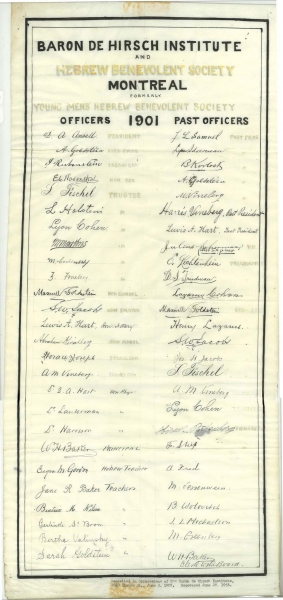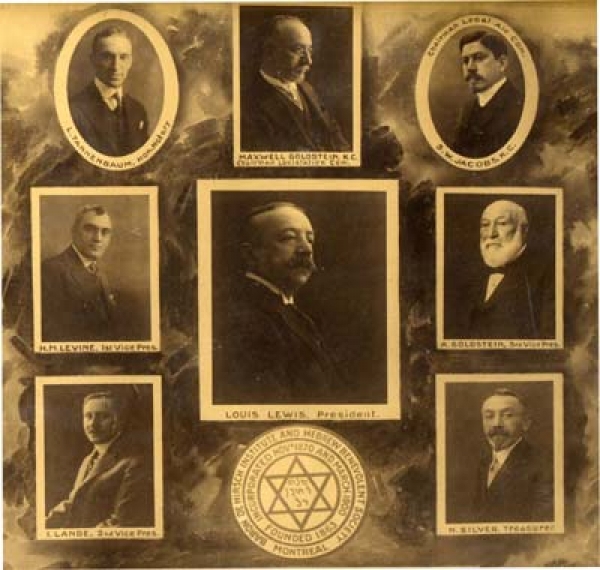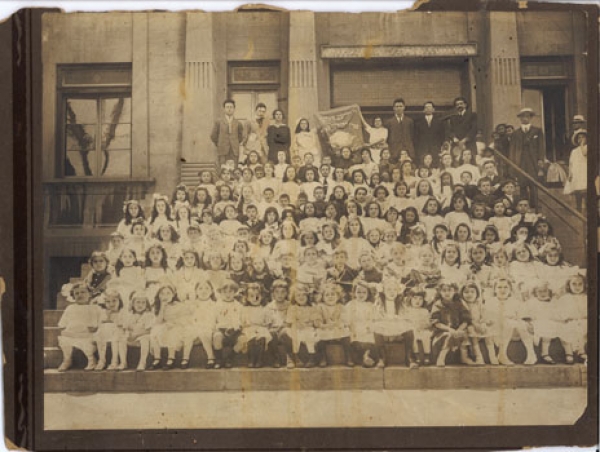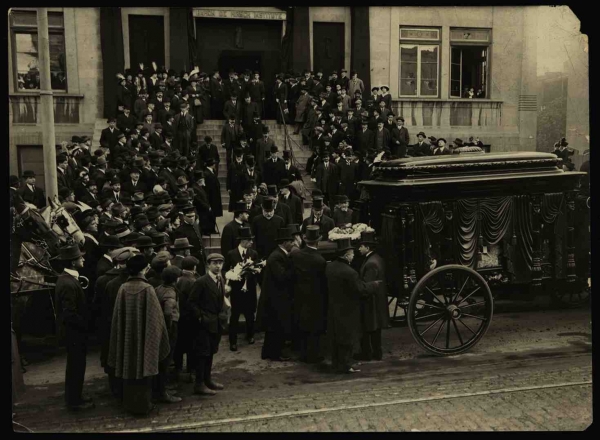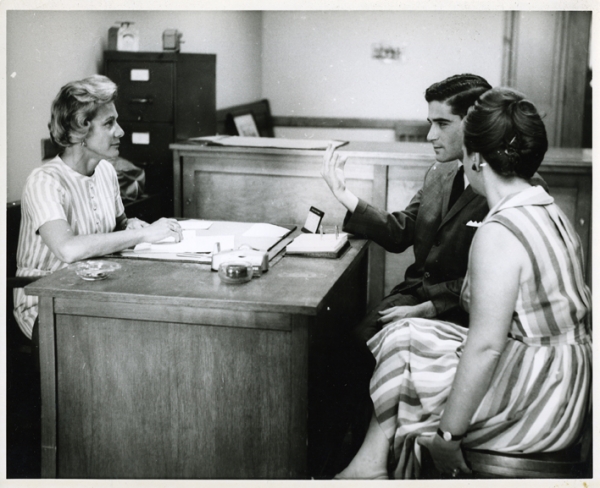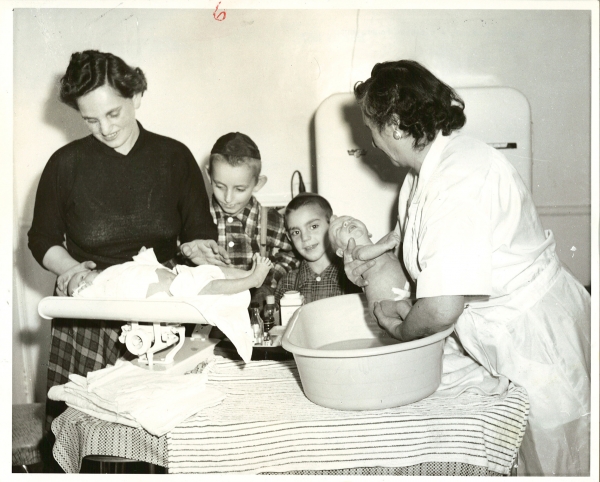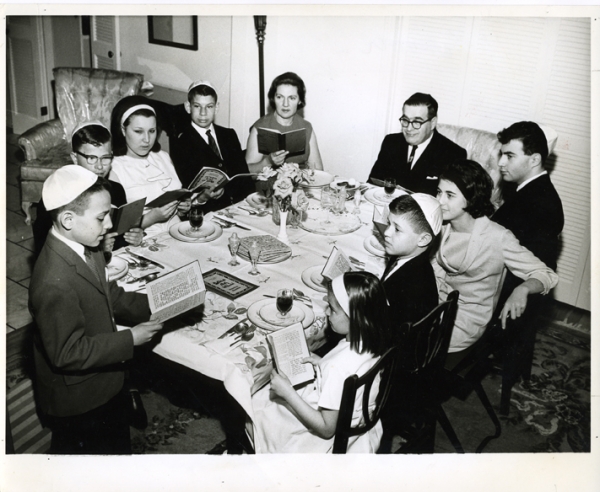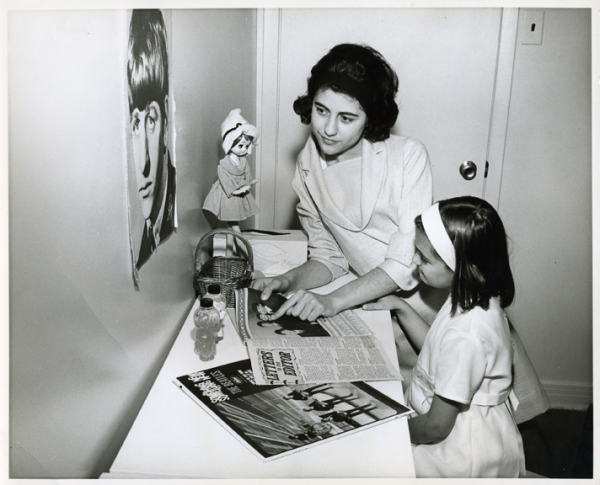Baron de Hirsch Institute
1901 - 1948
Bleury and Président Kennedy
The Baron de Hirsch Institute (BdHI) was the hub of Jewish social services in Montreal for more than 100 years. Founded in 1863 as the Young Men’s Hebrew Benevolent Society (YMHBS), the Institute was renamed after 1890 in honour of the Austrian philanthropists Baron and Baroness Maurice and Clara de Hirsch, who became its benefactors. The first location of the Institute, a former store at 7 Elizabeth Street (the present-day site of the Champs-de-Mars metro station) was repurposed to serve as a school for the Jewish poor and as a sheltering home for immigrants and orphans.
The BdHI relocated to a larger facility at 2040 Bleury in 1901 after a generous bequest from the Baroness de Hirsch following her death. The new building contained eight classrooms accommodating 476 students; a lecture hall for 200; a large auditorium with stage and dressing rooms; reading rooms and a library; a board room, and a secretary’s office. The building became the centre of the city’s rapidly expanding and increasingly vibrant Jewish community. Many of the newly formed Jewish cultural, social and athletic societies gathered in the meeting rooms within that were available free of charge. The BdHI played a vital role in helping establish many new communal organizations, among them the Herzl Dispensary (1907), the Montreal Hebrew Orphans and Sheltering Home (1909) and the Mount Sinai Sanatorium (1912). The Baron de Hirsch Cemetery was also established in 1905.
After the Federation of Jewish Philanthropies (FJP) was created in 1916 to centralize fundraising for Jewish charities in Montreal, the BdHI could dedicate itself to conducting the work of professionalized social services. The BdHI was restructured into several divisions: the Family Welfare Department assisted in the operations of two Montreal orphanages and operated a Visiting Homemaker Service amongst its activities; Legal Aid provided free legal support to those in need; and the Cemetery department took care of Jewish burial needs.
Following World War II, the BdHI worked with other Jewish communal organizations, including the Jewish Immigrant Aid Services (JIAS) and the Jewish Child Welfare Bureau, to help Jewish refugees transition to new lives in Montreal. In 1947 the Institute helped oversee foster care and support for 525 young adults who arrived as war orphans in Montreal. In 1949, the Institute and the Federation moved to a new Community Services Building at 493 Sherbrooke Street West (presently the Centraide building).
The Institute adapted to changes in Canadian and Quebec society – the Quiet Revolution, the creation of the welfare state, and the francization of professional services. During the 1970s the Quebec government modernized and restructured what had previously been the private, religious or ethnic-based provision of health and social services in the province. At that time the BdHI’s Jewish Family Services moved to the corner of Côte-Sainte-Catherine and Westbury Avenue with the Allied Jewish Community Services (formerly the FJP). The BdHI continued its work alongside the creation of the public Jewish Family Services Social Service Centre (JFSSSC) in 1974. Reform Bill 120 and the withdrawal of public funds in 1993 saw the closure of the public JFSSSC and its integration into Jewish Family Services of the Baron de Hirsch Institute. In 2008, Jewish Family Services of the Baron de Hirsch Institute, Jewish Immigrant Aid Services and Jewish Employment Montreal merged to become Ometz.
Compiled by Stephanie Tara Schwartz and Valérie Beauchemin, translated by Helge Dascher
Links
Liens
Baron de Hirsch - Back River CemeteriesBaron de Hirsch Institute - Jewish Public Library Archives, Jewish Montreal of Yesterday
Baron de Hirsch Institute / Jewish Family Services - CJHN
Federation of Jewish Philanthropies (FJP) - CJHN
History - Ometz
Ometz 150 years anniversary
Sources
Brown, Michael. “Good Fences Do Not Necessarily Make Good Neighbors: Jews and Judaism in Canada’s Schools and Universities.” Jewish Political Studies Review 11, No. 3-4 (1999): 97-113.
“Finding Aid to the Jewish Family Services / Baron de Hirsch Institute Fonds.” Jewish Public Library Archives.
Gordon, Judy. Four Hundred Brothers and Sisters: The Story of Two Jewish Orphanages in Montreal, Quebec 1909-1942. Toronto: Lugus Publications, 2002.
King, Joe. Fabled City The Jews of Montreal. Montréal: Éditions Price-Patterson Ltd, 2009.
Kucharsky, Danny. Sacred Ground on de la Savane: Montreal's Baron de Hirsch Cemetery. Montreal: Véhicule Press, 2008.
Medresh, Israël. Le Montréal juif d’autrefois. Trans. P. Anctil. Sillery: Éditions du Septentrion, 1997.
Switzer-Rakos, K. “Baron de Hirsch, The Jewish Colonization Association and Canada.” Leo Baeck Institute Yearbook. 32.1 (1987): 385-206.
Tulchinsky, Gerald. Canada’s Jews: A People’s Journey. Toronto: University of Toronto Press, 2008.
Tzuk, Yogev. “Challenge and Response: Jewish Communal Welfare in Montreal.” Contemporary Jewry 6.2 (1983): 43-52.
*Images courtesy of Jewish Public Library Archives, the Congregation Shaar Hashomayim Museum and Archives, and the Alex Dworkin Canadian Jewish Archives.

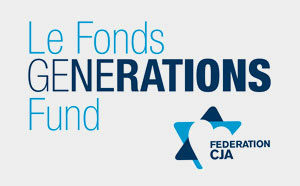
This project is funded in part by the Government of Canada.
Ce projet est financé en partie par le gouvernement du Canada.
Ce projet est financé en partie par le gouvernement du Canada.
This project is funded in part by the Government of Canada.
© 2011-2015 Museum of Jewish Montreal, All Rights Reserved.
Site by Air Code Design inc. ![]()
© 2011-2015 Musée du Montréal Juïf, Tous droits réservés. Site par Air Code Design inc. ![]()
